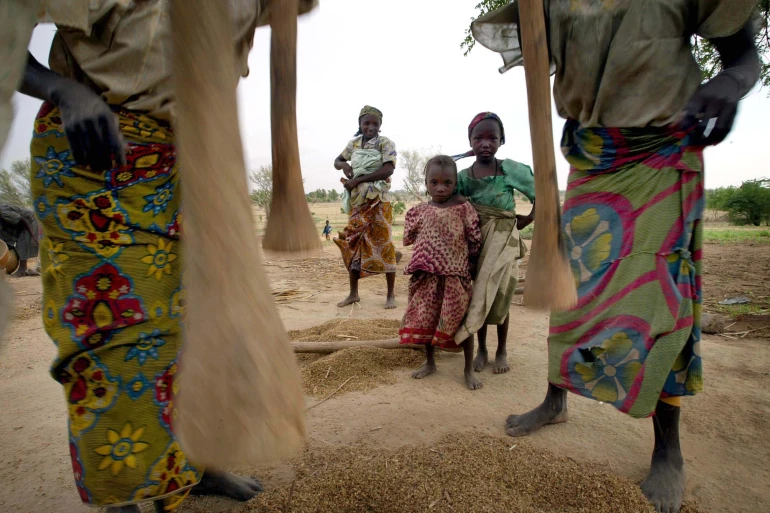
About 27 million people already suffer hunger, a number that could rise to 23 by June unless urgent action is taken.
About 27 million people in West Africa are suffering from hunger marking the region’s worst food crisis in a decade, international aid groups have said.
In a damning statement published on Tuesday, 11 major international organizations including Oxfam, ALIMA and Save the Children, warned that the figure could even rise to 38 million this June.
Unless urgent action is taken, they said, the increase would mark “a new historic level” and an increase by more than a third during last year.
The alert comes a day before a virtual conference on the food and nutrition crisis in the Sahel and Lake Chad.
Since 2015, the number of people in need of emergency food assistance in the region – which includes Burkina Faso, Niger, Chad, Mali, and Nigeria – has nearly quadrupled, jumping from seven to 27 million.
Assalama Dawalack Sidi, Oxfam’s regional director for West and Central Africa said the situation had been worsened by “drought, floods, conflict, and the economic impacts of COVID-19”, which has displaced millions and is “pushing them to the brink”.
“There is not enough food, let alone food that is nutritious enough for children. We must help them urgently because their health, their future and even their lives are at risk,” stressed Philippe Adapoe, Save the Children’s director for West and Central Africa.
The United Nations has estimated that 6.3 million children aged 6-59 months will be acutely malnourished this year, an increase of almost 30 percent from 2021.
“I had almost no milk left so I gave my baby other food. He often refused to take it and lost weight. In addition, he had diarrhoea, which worsened his condition,” said Safiatou, a mother who had to flee her village because of the violence in Burkina Faso.
With food increasingly scarce, families’ food sources, especially in the central Sahel, and families increasingly being forced to sell their assets, further jeopardising their productive capacity and the future of their children.
As often happens during crisis, girls are dropping out of school or being forced into early marriage.
“The rains were scarce. There is no more food. With the lack of grazing, the sheep are getting thinner and this forces us to sell them at a loss. I used to have 12 sheep, but now I only have one left”, explained Ramata Sanfo, a herder from Burkina Faso. “I would like to have my cattle back so that I have enough money and my children can go back to school.”
To add to the already dire situation, experts have predicted that Russia’s invasion of Ukraine could push food prices up to 20 percent worldwide – “an unbearable increase for an already fragile population”.
The conflict will likely significantly reduce the availability of wheat in the six West African countries, which import at least a third or even as much as half of their consumption volumes from the conflicting countries.
And while the crisis has shown no sign of abating during the past decade, international donations are drastically reducing. Last year, the humanitarian response plan for West Africa failed to reach half of its scope.
“The Sahel crisis is one of the worst humanitarian crises on a global scale and, at the same time, one of the least funded,” said Mamadou Diop, the regional representative of Action Against Hunger. “We fear that by redirecting humanitarian budgets to the Ukrainian crisis, we risk dangerously aggravating one crisis to respond to another.”
According to the statement, Denmark has announced that it will postpone about half of its entire bilateral development assistance to Burkina Faso and Mali this year, in order to fund the reception of people displaced from Ukraine.

SOURCE: AL JAZEERA




 World Opinions Débats De Société, Questions, Opinions et Tribunes.. La Voix Des Sans-Voix | Alternative Média
World Opinions Débats De Société, Questions, Opinions et Tribunes.. La Voix Des Sans-Voix | Alternative Média




